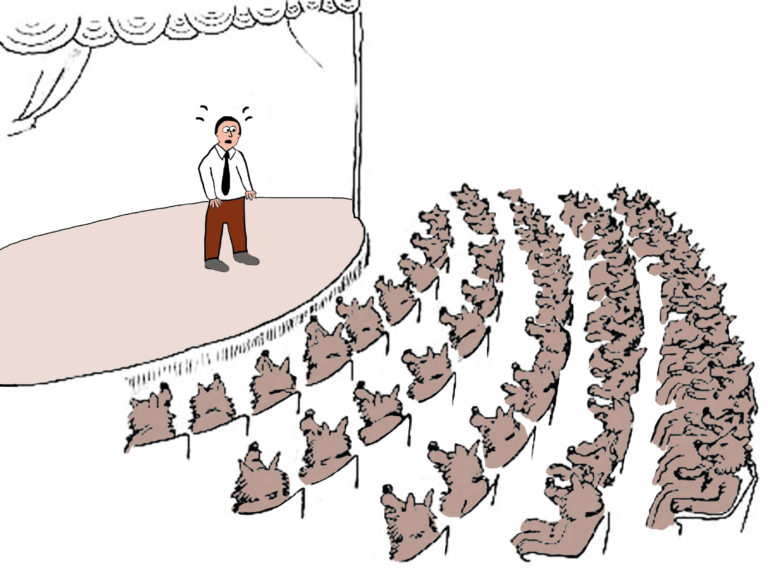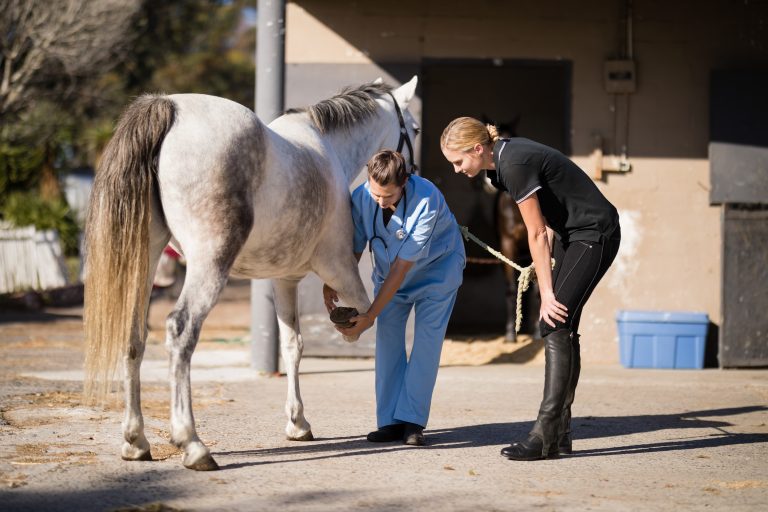
It is not unusual for horses to suffer from periodic ophthalmia, which is also referred to as recurrent anterior uveitis or moon blindness. This problem is often related to immune-mediated disease. Cases have the potential to lead to blindness and can be difficult to resolve even with local and systemic anti-inflammatory medications. Historically, intravitreal injection of gentamycin has been reported as a useful adjunctive therapy. A study at the College of Veterinary Medicine in Auburn, Mississippi, looked into this potential strategy to contain uveal inflammation [Fischer, B.M.; McMullen, J.R.; Reese, S.; Brehm, W. Intravitreal injection of low-dose gentamycin for the treatment of recurrent or persistent uveitis in horses: Preliminary results. BMS Veterinary Research 2019, vol. 15, no. 29; https://doi.org/10.1186/s12917-018-1722-7].
The study reviewed results of 86 horses treated with a single intravitreal injection using a low dose (4 mg) of undiluted gentamycin with the horse under sedation. Responses were evaluated immediately in 86 horses, and between 30–780 days following injection in 59 horses. Bilateral treatment was performed in 29 horses. Leptospirosis was identified (with PCR ratios comparing aqueous humor and serum antibody titers) in 29% of 79 horses.
Peri-injection complications were noted: 30.2% had subconjunctival hemorrhage and 4.7% had intracameral hemorrhage—both bleeding conditions resolved within five days.
Post-injection complications were considered in 59 horses: Cataracts developed or matured in 8.5% of horses and retinal degeneration occurred in 5.1%. Four of the five cataracts developed in horses receiving gentamycin with preservatives, and all these eyes had cataracts in various stages before intravitreal injection. The researchers noted that it is advisable to use gentamycin solutions that do not contain preservatives.
Of the 59 horses with follow-up beyond 30 days, 88.1% (52 of 59) were controlled with absence of either recurrent or persistent inflammation even though topical and medical therapy had been tapered off over 4-8 weeks, then discontinued. Recurrent inflammation continued in 8.5%, and persistent inflammation in 3.4%. Vision improved in 18.6%, remained unchanged in 71.2%, and deteriorated in 10.2%.
Other methods to suppress active uveitis have been successful—cyclosporin suprachoroidal implants or pars plana vitrectomy. Intravitreal injection with low-dose gentamycin is associated with good success for control of the disease and with a low level of complications compared to medical therapy.








